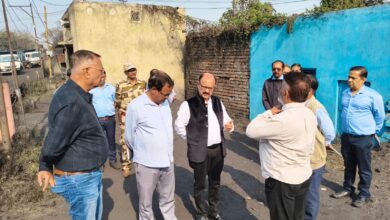CAT Members Should Shed Administrative Bias in Service Matters: Veteran Trade Union Leader C. Srikumar
The veteran Trade Union leader, who has been fighting cases on behalf of government employees since the Tribunal’s inception in 1985, strongly endorsed the CJI’s statement

OPINION PIECE
Veteran trade union leader of Central Government employees, C. Srikumar, has welcomed the candid remarks of Chief Justice of India (CJI) Justice B. R. Gavai, who recently raised concerns over the functioning of the Central Administrative Tribunal (CAT) at its 10th Annual Conference.
The CJI pointed out that several Administrative Members—often retired senior bureaucrats—are reluctant to pass orders against the government, preferring to shift responsibility to higher courts. He observed that such reluctance has led to multiple appeals against CAT judgments, resulting in avoidable litigation and prolonged delays in justice delivery.
C. Srikumar, who has been fighting cases on behalf of government employees since the Tribunal’s inception in 1985, strongly endorsed the CJI’s statement. “Some Administrative Members of CAT forget that they are no longer bureaucrats. They sit in a judicial forum where they are expected to render justice without fear or favor. Unfortunately, many are still unable to come out of their pro-government mindset,” he said.
He further highlighted that even some judicial members without prior litigation experience struggle to grasp the intricacies of service matters. “This often results in unnecessary delays and routine directions asking the government to dispose of employee representations within a timeframe. Meanwhile, employees are burdened with hefty legal fees,” he added.
Pointing to the alarming backlog, Srikumar revealed that over 12 lakh cases are pending before CATs, while since 1985, 5,71,467 fresh cases have been filed. He attributed this volume to the apathy of the government and its bureaucracy towards employees’ service grievances.
“The Joint Consultative Machinery (JCM), originally created to resolve such disputes amicably, has become defunct. Many members haven’t attended a single meeting in over a decade. Employees now have no option but to approach CATs, making litigation the only resort—which is both expensive and time-consuming,” he remarked.
Srikumar called upon the Supreme Court to issue clear guidelines for CAT members, ensuring independence and fairness in adjudication. He also urged the government to minimize frivolous appeals against Tribunal orders. “Unless the government shows restraint, CAT will lose its credibility, and employees will continue to suffer delays despite winning their cases,” he said.
Concluding, he expressed hope that the CJI’s intervention would lead to systemic reforms in the functioning of CAT and ensure that its original purpose—speedy and effective redressal of service matters—does not remain a distant dream.
Views expressed here are those of C. Srikumar, veteran Trade Union leader




